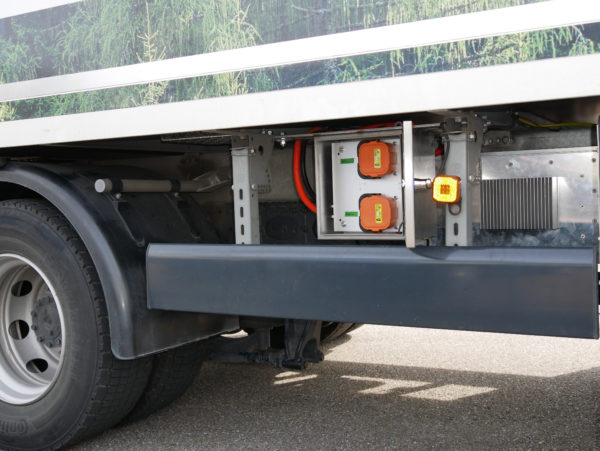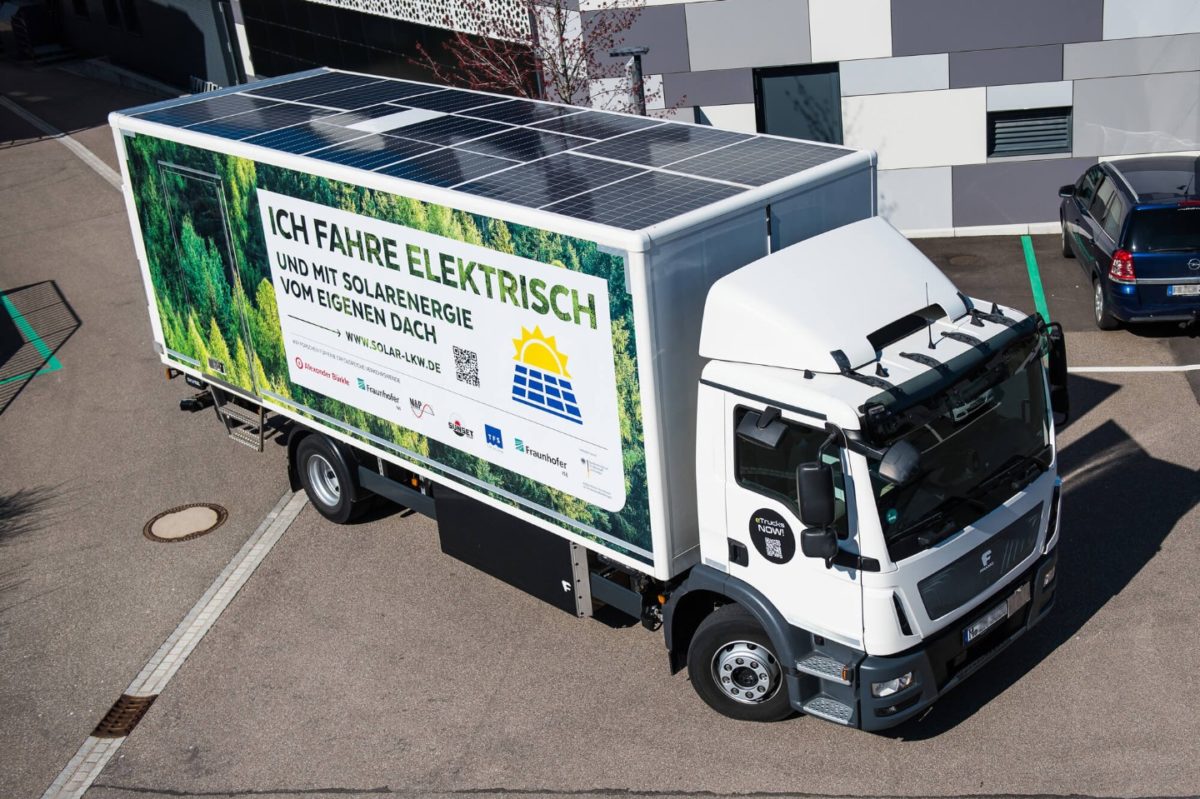Researchers at Germany's Fraunhofer Institute for Solar Energy Systems ISE have started testing the high-voltage solar modules they developed in partnership with industrial clients for heavy-duty trucks, as part of the Lade-PV project launched in April 2020.
A 3.5 kW PV system has been deployed across the entire roof surface of an 18-ton electric truck produced by German specialist Framo GmbH. It will now be tested for one year in the surrounding area of Freiburg by German technology company Alexander Bürkle GmbH.
Readings will be made via the IVImon mode, which has also been developed by the Fraunhofer ISE and will provide relevant data of the battery storage units used in electric vehicles. The PV system is connected to the 800-volt traction battery embedded in the truck and is reportedly able to cover between 5-10% of the vehicle's electricity demand, depending on location.
Designed by Fraunhofer ISE scientists, the solar modules were manufactured by Germany-based Sunset Energietechnik GmbH and installed on the truck's roof by vehicle cooling system provider TBV Kühlfahrzeuge GmbH. “To ensure that the electricity yields are high and the material and cabling costs are low, the solar modules in the truck roof are connected in series,” the Fraunhofer ISE said in a statement. “The resulting high voltages of up to 400 volts could pose a safety risk in the event of an accident.”

Image: Fraunhofer ISE
The research group placed a separation device in each of the solar modules' junction boxes. It claims this device is able to disconnect the panels within milliseconds in the case of an accident. Furthermore, partner companies M&P Motion Control and Power Electronics GmbH equipped the panels with a DC power controller that communicates with the vehicle control system via a Controller Area Network (CAN) bus – a message-based protocol designed to allow microcontrollers and devices to communicate in common automobiles.
Popular content
“This truck, the first equipped with these PV modules, has now passed the technical inspection, marking a milestone towards more climate-friendly road freight transport,” the German research institute said, without providing further details on the tested technology.
In a recent interview with pv magazine, Bonna Newman, program manager for PV and Mobility, Module Technologies at the Netherlands Organization for Applied Scientific Research (TNO), said that electric cars incorporating PV modules on their bodywork or roof have the potential to reach more than 10,000 km per year of pure solar-powered driving and that the modules could have a payback time of just three to four years. According to her, the benefits of vehicle-integrated PV are proportional to the solar radiation levels of a given area, its demand for electric vehicles, and power prices.
Germany's Institute for Solar Energy Research in Hamelin (ISFH) is currently developing a light commercial vehicle prototype equipped with vehicle-integrated photovoltaics (VIPV). The researchers have built the prototype based on the “Work L” small truck, which is manufactured by Germany-based StreetScooter GmbH. The vehicles feature a total area of 15 m2 on which 10 PV modules can be deployed.
This content is protected by copyright and may not be reused. If you want to cooperate with us and would like to reuse some of our content, please contact: editors@pv-magazine.com.



2 comments
By submitting this form you agree to pv magazine using your data for the purposes of publishing your comment.
Your personal data will only be disclosed or otherwise transmitted to third parties for the purposes of spam filtering or if this is necessary for technical maintenance of the website. Any other transfer to third parties will not take place unless this is justified on the basis of applicable data protection regulations or if pv magazine is legally obliged to do so.
You may revoke this consent at any time with effect for the future, in which case your personal data will be deleted immediately. Otherwise, your data will be deleted if pv magazine has processed your request or the purpose of data storage is fulfilled.
Further information on data privacy can be found in our Data Protection Policy.